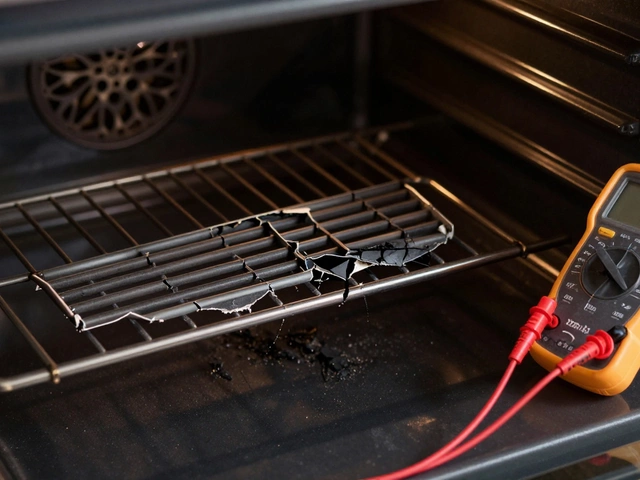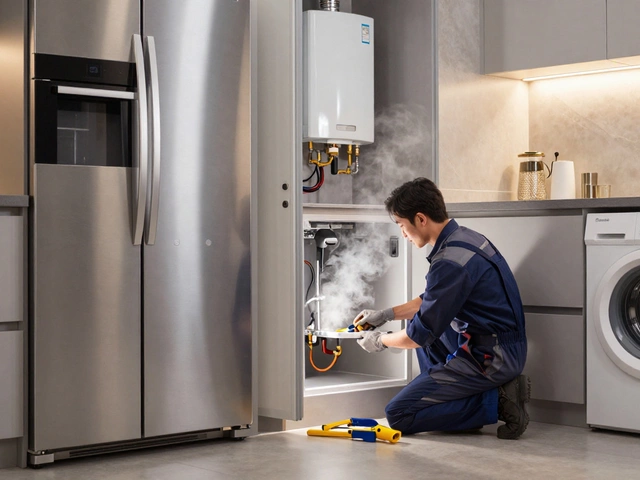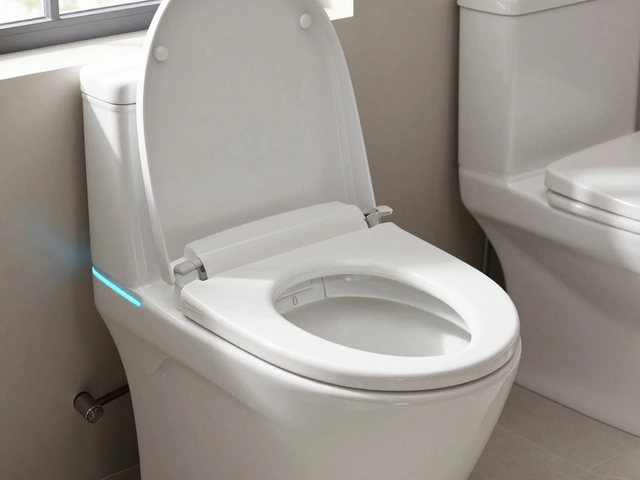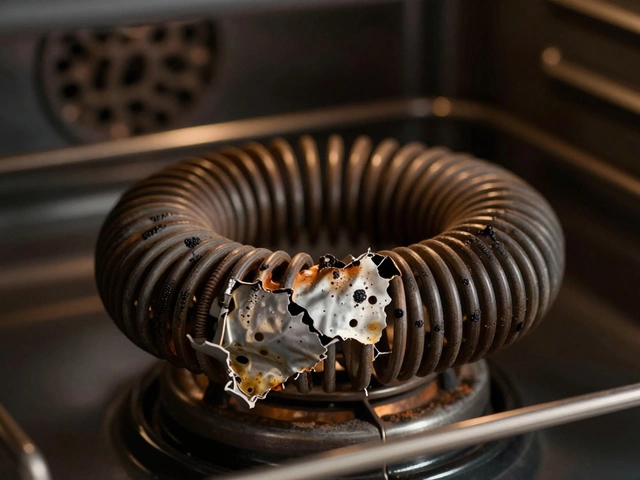Got a busted laptop and wondering if it's worth fixing? You're not alone. Repairing a laptop can seem like a major hit to your wallet, but not knowing the typical costs can leave you scratching your head. Whether it’s a cracked screen or your device just won't turn on, the cost of getting it running again can vary widely.
If we break it down, minor repairs like replacing a power jack might set you back around $100 to $150. But if we’re talking about serious stuff like a fried motherboard, you might be looking at $300 or more. Knowing these numbers can really help in deciding whether to fix your trusty machine or put that cash toward a new one. Before making a move, it's crucial to weigh the costs and consequences.
Going the DIY route for minor issues can sometimes save cash, but it's not always the safest option unless you're comfortable messing with tech or have a guide handy. Think about whether you might make things worse. Let's explore the landscape of laptop repair costs further.
- Understanding Repair Costs
- Common Laptop Issues and Prices
- When to Consider DIY
- Balancing Costs with Laptop Value
- Finding Reliable Repair Services
- Tips to Avoid Future Repairs
Understanding Repair Costs
When your laptop breaks down, one of the first thoughts is, "How much is this gonna cost me?" Let's dive into the factors that influence laptop repair costs so you can make informed decisions.
1. Type of Damage
The nature of the problem hugely affects the price. Simple issues like replacing a keyboard might cost you between $50 and $120. But more complex issues, such as a broken screen, can range from $200 to $400 depending on your laptop model.
2. Laptop Model
The brand and model of your laptop play a big role too. Premium brands like Apple or Surface usually have higher repair costs, mainly due to expensive parts and fewer third-party repair options. In contrast, mainstream brands like Dell or HP might offer more affordable solutions.
3. Warranty Coverage
If your laptop is still under warranty, some repairs might be covered for free or with a reduced fee. Always check your warranty status to potentially save some bucks before heading to a repair shop.
4. Labor Costs
Where you get your repair done can also change how much you pay. Authorized service providers might charge more for labor—anywhere from $60 to $100 an hour, while local shops could offer more budget-friendly rates.
5. Parts Availability
Sometimes, the availability of parts can push costs up. Rare or older parts can take longer to find and might be pricier, impacting your overall repair cost.
Average Repair Costs
Here's a quick rundown of common repair costs:
| Repair Type | Average Cost |
|---|---|
| Battery Replacement | $100 - $150 |
| Screen Replacement | $200 - $400 |
| Motherboard Repair | $250 - $500 |
Knowing these cost factors can help you plan and budget accordingly, so you're not caught off guard by unexpected expenses. Always weigh the repair cost against the value of your laptop to decide if it's worth the investment.
Common Laptop Issues and Prices
When your laptop breaks down, it's often a guessing game about how much it will set you back to get things back to normal. Let's dive into some common repairs and what you can typically expect to pay.
Screen Damage
If you've accidentally dinged or outright shattered your laptop screen, you're looking at a repair price ranging from around $100 to $300, depending on the size and type of screen. Touchscreens and larger screens tend to creep up towards the higher end.
Hard Drive and SSD Issues
Hard drives give out, unfortunately, and when they do, repair costs can vary. Replacing an HDD can cost somewhere between $60 and $200. For the speedier SSD replacements, you're looking at $150 to $400 due to their higher performance and cost. Consider the value of your laptop repair choice and data recovery options.
Keyboard Replacement
Sticky keys or an outright spill disaster? The cost to replace a laptop's keyboard varies by model, usually falling in the $80 to $200 range. If you've got a fancy backlit model, expect it on the pricier side.
Battery Replacement
Laptop batteries eventually bow out. New batteries generally range from $50 to $150, depending on the brand and battery type. Swapping it yourself might save a bit, but the convenience of having a pro do it might be worth paying a little more.
Motherboard Failure
Facing motherboard failure can be one of the costliest repairs. Prices usually sit between $200 and $600, making it crucial to weigh the repair costs against buying a new laptop. Ouch!
These repairs are the bread and butter of most repair shops. Remember to weigh the cost against the laptop's remaining lifespan and performance needs. For the tech-savvy, some of these repairs could be tackled at home, but if you're unsure, reaching out to a reliable repair service is usually worth it.
When to Consider DIY
Thinking about fixing your laptop on your own? It can be tempting to go the DIY route, especially when repair shop prices seem sky-high. But, how do you know if it's the right call? Let's break it down.
Assess the Complexity
For simple issues like replacing the RAM or swapping out a faulty battery, DIY can be a no-brainer. Most laptop manufacturers offer clear guides, and a quick YouTube search can show you how to handle these yourself with minimal fuss.
Have the Right Tools?
Not every problem needs a tech toolkit, but having the proper screwdrivers and other basics can make the job much easier. If the repair work seems too delicate – think soldering a new port – you might want to pass it to the pros.
Warranty Considerations
Tinkering with a laptop still under warranty can void the coverage, and then you're left with a dud and a voided warranty if anything goes wrong. Check your warranty terms before diving in.
Time vs. Money
If you're short on time, even a simple fix can feel overwhelming and frustrating. Weigh the time you'll invest in sourcing parts, tools, and instructions against the cost of a professional repair.
Emergency Fixes
In a bind and need a temporary fix? Basic solutions like using an external mouse for a broken trackpad or a monitor for a flickering screen might tide you over until you can afford a proper fix.
DIY can be fun and a great learning experience, but it’s not for every repair. Evaluate your comfort level and the risks involved before deciding. When in doubt, consulting a pro might save you a bigger headache down the line.

Balancing Costs with Laptop Value
Wondering if fixing your laptop is worth the hassle? It all boils down to the value of your laptop versus the cost of repair. Nobody wants to dump cash into an ageing device if it’s not up to snuff.
Consider the Laptop’s Age and Performance
First things first—think about how old your laptop is. For laptops over five years old, repairs might be like sticking a band-aid on a sinking ship. Why? Because tech is moving fast, and older models might struggle with new software. If the cost to fix it is half or more of the price of a new laptop, it might be time to consider an upgrade.
The Resale Value
Another angle to explore is the resale value. Some laptops, especially those from high-end brands like Apple or top-tier Dell models, hold their value better. Fixing and selling them might still get you a good chunk of change, perhaps even covering a portion of a new purchase.
Cost vs. Replacement
If your repair costs are creeping anywhere near $400, it might be smarter to shop around for a new device, especially if you rely on your laptop for school or work. Newer laptops can deliver better battery life, faster speeds, and more functionality. Look at cost-comparison sites or seasonal sales for opportunities to save on a new purchase.
Practical Scenarios
| Issue | Repair Cost | Laptop's Age (Years) | Repair or Replace? |
|---|---|---|---|
| Cracked Screen | $150 | 3 | Repair |
| Battery Replacement | $100 | 4 | Repair |
| Motherboard Issue | $350 | 5 | Replace |
When making your decision, consider how crucial the laptop is for your daily tasks. For some, a temporary repair can work as a stop-gap until a new model fits in the budget. Think strategically about these costs and keep an eye on those seasonal sales!
Finding Reliable Repair Services
So, your laptop's acting up, and you’re thinking about taking it to a pro. How do you make sure you're not getting played? First things first, look for repair services that are well-reviewed online. Checking out sites like Yelp, Google Reviews, or even tech forums can give you an honest look at what people really think of the place you’re eyeing.
Another trick is to hunt for repair services that are authorized or certified by your laptop's brand. Manufacturers like Apple, Dell, or HP list authorized service providers on their websites. This could save you from warranty voids, and ensure that the repair shop uses genuine parts.
Check Their Track Record
Before you hand over your laptop, it’s a good idea to ask repair services about their experience with your specific issue. A good shop should be open about their track record and explain how long repairs usually take.
Word of mouth can be another reliable source. Ask friends, family, or coworkers if they’ve had good experiences with local services. Personal recommendations can lead you to trustworthy repairs.
The Cost Transparency Factor
Be wary of any service that can't give you a ballpark cost before they start tinkering. A reliable service should offer a free or affordable diagnostic to identify problems and give you an estimate. If they start adding on extra fees along the way, consider that a red flag.
When choosing a repair service, speed also matters. No one wants to wait weeks to get their laptop back. So ask about typical turnaround times. Some shops might offer expedited services if you're in a pinch.
Finally, don’t forget to ask about warranties on the repairs themselves. A decent repair service should offer some guarantee on their work, like a 30 or 90-day warranty, which reassures that they stand by what they fix.
Tips to Avoid Future Repairs
Keeping your laptop in tip-top shape isn’t just about saving money on laptop repair costs; it's also about prolonging the life of a device you rely on every day. So, what can you do to keep your laptop running smoothly without constant trips to the repair shop?
Regular Cleaning
A little cleaning goes a long way. Laptops can gather dust and crumbs, especially around the keyboard and vents, leading to overheating. Hit it regularly with some compressed air to blow out any stubborn dust particles. Also, gently wipe the screen and keyboard with a microfiber cloth to keep everything clean.
Safe Charging Practices
Improper charging habits can fry your laptop's battery. Always use the right charger—those budget chargers might look tempting but can end up causing more harm than good. Try not to let the battery drain completely before charging.
Keeping Software Updated
Software updates are easy to ignore, but they often include vital security patches and performance improvements. Set your laptop to update automatically, if possible, to ensure you're always protected against the latest threats.
Use Protective Gear
Consider investing in some protective accessories. A sturdy laptop case and a screen protector can avoid damage from accidental drops or spills. It may seem like overkill at first, but it's cheaper than replacing a cracked screen!
Avoid Overheating
Overheating is a major cause of laptop repair. Keep your device on a hard surface when in use, allowing air to circulate freely underneath. Consider a laptop cooling pad for long usage sessions. And, steer clear of using it on a bed or cushion where heat can build up.
Back-Up Your Data
Though not directly a way to avoid laptop repair, regularly backing up your data can spare a lot of stress if something does go wrong. Use an external hard drive or cloud service to ensure your important files are safe.
| Tip | Benefit |
|---|---|
| Regular Cleaning | Prevents overheating, prolongs life |
| Safe Charging | Extends battery lifespan |
| Software Updates | Improves security and performance |
| Protective Gear | Prevents physical damage |
By following these straightforward tips, you'll minimize your laptop's downtime and extend its service life. A bit of care today can save you from hefty repair bills down the line!









